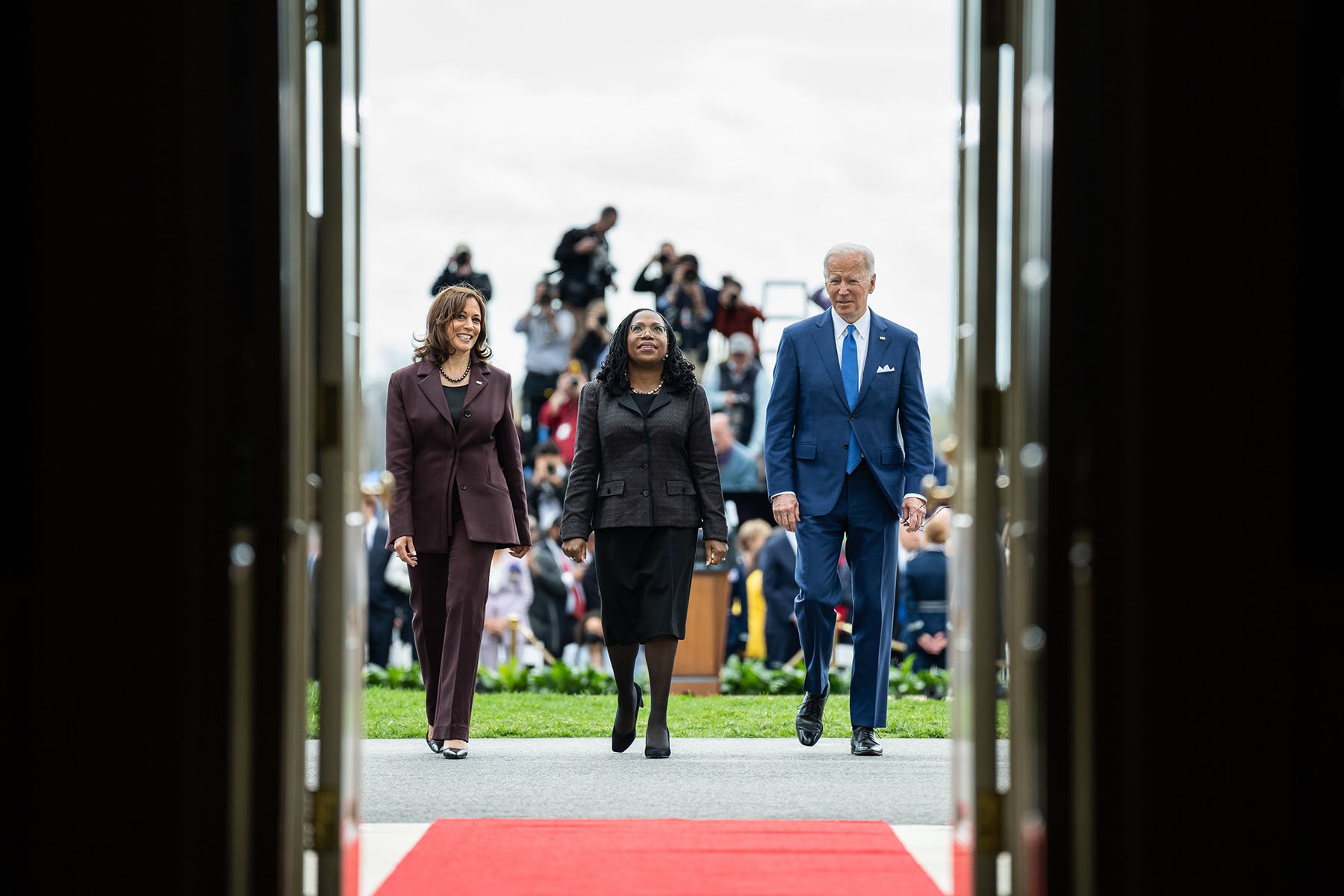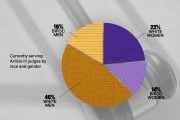During Joe Biden’s four years as president, he and Senate Democrats prioritized diversity at an unprecedented level for nominees to the federal judiciary, making a lasting mark on the nation’s courts.
Biden entered office in 2021 focused on judicial appointments after President Donald Trump reached a record of 234 judicial confirmations in four years. Ultimately, Biden surpassed this record by one, and he broke a number of records on diversity as well. Biden has appointed more women than any other president before him. He also appointed the largest number of out LGBTQ+ judges, the most Black women and the most women of color of any president.
Of his 235 judicial confirmations, more than 60 percent are women. The largest share — 37 percent — are women of color, 26 percent are White women, 22 percent are men of color and 15 percent are White men. Beyond racial diversity, nearly 100 of the confirmed judges nominated by Biden have worked as civil rights lawyers or public defenders, adding professional diversity to the pipeline that is often overlooked.
The 19th took a closer look at how Biden shaped the federal bench and how the diversity of his judicial appointments could be a stark contrast to Trump, who overwhelmingly appointed White men during his first term in the White House. The data included throughout the article and graphics focus on full-time “Article III judges” who make up the U.S. Supreme Court, federal courts of appeals, federal district courts and the U.S. Court of International Trade.
Biden’s record on diversity includes Justice Ketanji Brown Jackson, the first Black woman to serve on the U.S. Supreme Court; Beth Robinson, the first out LGBTQ+ woman to serve on a federal appeals court; and Shanlyn Park, who became the first Native Hawaiian woman to serve as a lifetime federal judge.
Research indicates that more diverse courts strengthen public trust in the justice system and shape decision-making. Judges with public defender backgrounds, for example, are less likely to implement harsh criminal sentences. Studies have also shown that judicial panels with women are more likely to rule in favor of plaintiffs in sex discrimination cases.
The diversity among Biden’s judicial picks stands out in particular as Trump enters the White House for a second term. The first Trump administration also prioritized federal judges, but White men represented 64 percent of the judicial confirmations. White women made up 19 percent, men of color were 11 percent and women of color were 5 percent of Trump’s judicial confirmations.
-
Read Next:
Historically, Republican presidents “have made the judiciary more diverse than their Republican predecessors, and Democrats made it more diverse than their Democratic predecessors,” said Stacy Hawkins, a professor with Rutgers Law School. But Trump disrupted that trend.
“I think given this strident rhetoric of anti-DEI that now pervades the Republican Party, it will be interesting to see whether or not Trump actually fails to even succeed his own past poor record,” Hawkins said.
Arguably one of Biden’s most remarkable judicial achievements is confirming 145 women judges during his four years in office. As a comparison, Trump appointed 55 women judges in the same time, and President Barack Obama confirmed 136 women in eight years.
Currently, 500 women make up a third of the sitting Article III federal judges. A little more than half of those sitting on the federal bench were appointed by Biden and Obama. Efforts to significantly boost women’s representation in the nation’s highest courts started with President Jimmy Carter. During his only term from 1977 until 1981, Carter appointed 41 women — including eight women of color — and 57 people of color to federal judgeships. This was more than the 38 presidents before him combined. Before he took office, just 10 women, one woman of color and 35 people of color had served on the federal bench.
-
Read Next:
Even as the number of women federal judges has grown, women of color were largely left behind until recent administrations. Before Biden took office, just 8 Black women, 6 Latina women and 2 Asian-American women had ever held seats on U.S. appellate courts, the second most powerful courts after the Supreme Court. Biden appointed 13 Black women, 4 Latina women and 5 Asian-American women to these prestigious seats.
Women of color face challenges breaking into coveted legal positions at every level of the profession, but those who are ultimately nominated to federal judge positions are also more likely to face questions about whether they have political biases and whether they are qualified for the position, or simply a “DEI hire.”
“I don't think that it is, in any way, shape or form, a question of diversity versus merit,” Hawkins said. “Merit is the question that always gets evaluated first. We are only considering candidates that merit appointment, then among those meritorious candidates there’s the question of what else is important in our selection decision? And I think that diversity is always an important consideration, and has been consistently considered by both Republican and Democratic presidents.”
During Trump’s first term in office he had the ability to make a number of appellate courts more conservative. On the U.S. Court of Appeals for the 5th Circuit, for example, 12 of its 17 active judges have been selected by Republican presidents — six of them by Trump.
The court represents Louisiana, Mississippi and Texas, and critics argue that Trump’s additions have contributed to the court making more bold rulings on issues including reproductive rights. For example, in January 2024 the 5th Circuit ruled that the Biden administration could not use federal law to force Texas hospitals and doctors to perform emergency abortions as stabilizing treatment.
During Biden’s term he was able to flip some seats on these more conservative courts, like the 7th circuit, but the highest number of Biden nominees were confirmed to courts in the northeast, known for more liberal policies. Biden also managed to maintain a liberal majority on the 9th Circuit Court of Appeals, which covers a large segment of the country and handles a number of high-profile cases.
Researchers and legal professionals will be watching to see how Trump shapes key federal courts in his second term, though he will not have as many vacancies this time around.
Jasmine Mithani contributed to this report.







